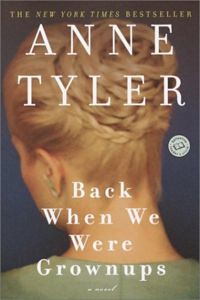Monday, February 1, 2010 1 p.m.
Balram Halwai is a complicated man. Servant. Philosopher. Entrepreneur. Murderer. Over the course of seven nights, by the scattered light of a preposterous chandelier, Balram tells the terrible and transfixing story of how he came to be a success in life-- having nothing but his own wits to help him along.
Reserve your copy of The White Tiger by Aravind Adiga on ALISweb
BOOK REVIEWS
Publishers Weekly Review: /* Starred Review */
A brutal view of India's class struggles is cunningly presented in Adiga's debut about a racist, homicidal chauffer. Balram Halwai is from the “Darkness,” born where India's downtrodden and unlucky are destined to rot. Balram manages to escape his village and move to Delhi after being hired as a driver for a rich landlord. Telling his story in retrospect, the novel is a piecemeal correspondence from Balram to the premier of China, who is expected to visit India and whom Balram believes could learn a lesson or two about India's entrepreneurial underbelly. Adiga's existential and crude prose animates the battle between India's wealthy and poor as Balram suffers degrading treatment at the hands of his employers (or, more appropriately, masters). His personal fortunes and luck improve dramatically after he kills his boss and decamps for Bangalore. Balram is a clever and resourceful narrator with a witty and sarcastic edge that endears him to readers, even as he rails about corruption, allows himself to be defiled by his bosses, spews coarse invective and eventually profits from moral ambiguity and outright criminality. It's the perfect antidote to lyrical India. (Apr.) --Staff (Reviewed January 14, 2008) (Publishers Weekly, vol 255, issue 2, p37)
This first novel by Indian writer Adiga depicts the awakening of a low-caste Indian man to the degradation of servitude. While the early tone of the book calls to mind the heartbreaking inequities of Rohinton Mistry's A Fine Balance , a better comparison is to Frederick Douglass's narrative about how he broke out of slavery. The protagonist, Balram Halwai, is initially delighted at the opportunity to become the driver for a wealthy man. But Balram grows increasingly angry at the ways he is excluded from society and looked down upon by the rich, and he murders his employer. He reveals this murder from the start, so the mystery is not what he did but why he would kill such a kind man. The climactic murder scene is wonderfully tense, and Balram's evolution from likable village boy to cold-blooded killer is fascinating and believable. Even more surprising is how well the narrative works in the way it's written as a letter to the Chinese premier, who's set to visit Bangalore, India. Recommended for all libraries.--Evelyn Beck (Reviewed February 15, 2008) (Library Journal, vol 133, issue 3, p89)
What makes an entrepreneur in today's India? Bribes and murder, says this fiercely satirical first novel. Balram Halwai is a thriving young entrepreneur in Bangalore, India's high-tech capital. China's Premier is set to visit, and the novel's frame is a series of Balram's letters to the Premier, in which he tells his life story. Balram sees India as two countries: the Light and the Darkness. Like the huddled masses, he was born in the Darkness, in a village where his father, a rickshaw puller, died of tuberculosis. But Balram is smart, as a school inspector notices, and he is given the moniker White Tiger. Soon after, he's pulled out of school to work in a tea shop, then manages to get hired as a driver by the Stork, one of the village's powerful landlords. Balram is on his way, to Delhi in fact, where the Stork's son, Mr. Ashok, lives with his Westernized wife, Pinky Madam. Ashok is a gentleman, a decent employer, though Balram will eventually cut his throat (an early revelation). His business (coal trading) involves bribing government officials with huge sums of money, the sight of which proves irresistible to Balram and seals Ashok's fate. Adiga, who was born in India in 1974, writes forcefully about a corrupt culture; unfortunately, his commentary on all things Indian comes at the expense of narrative suspense and character development. Thus he writes persuasively about the so-called Rooster Coop, which traps family-oriented Indians into submissiveness, but fails to describe the stages by which Balram evolves from solicitous servant into cold-blooded killer. Adiga's pacing is off too, as Balram too quickly reinvents himself in Bangalore, where every cop can be bought. An undisciplined debut, but one with plenty of vitality. (Kirkus Reviews, February 15, 2008)





